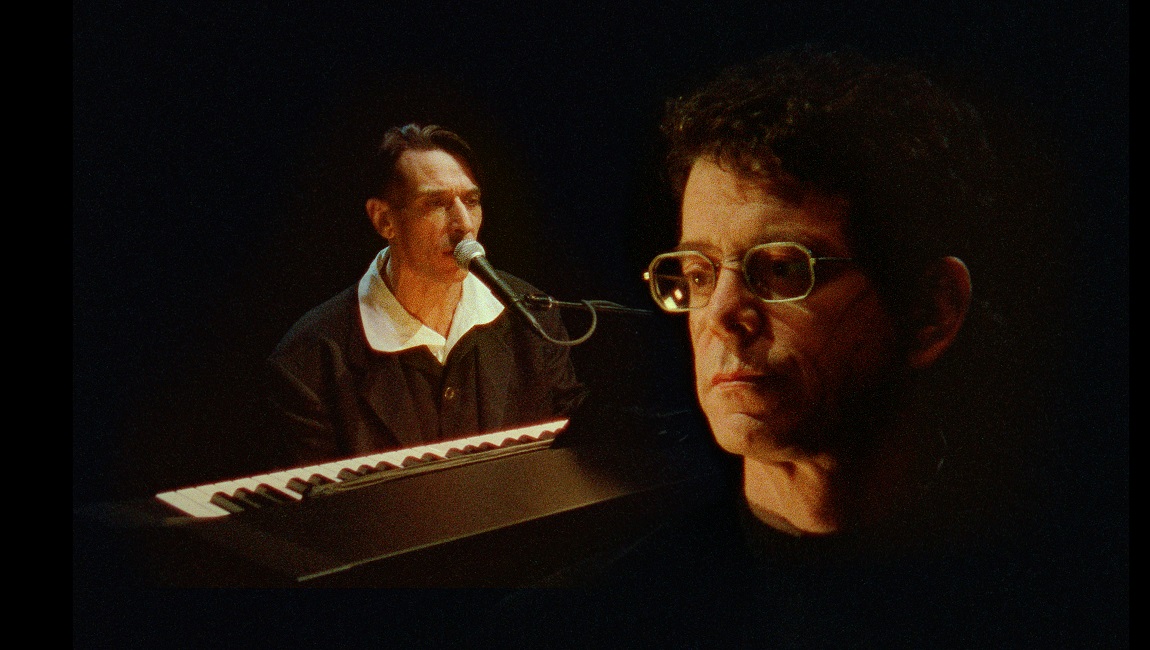It might seem strange that Hideaki Anno’s name would come to be associated with nostalgic childhood properties, given how much of his work has engaged with the idea of leaving certain things behind as you grow. After wrapping production on the bona fide mega-sensation that is the original Neon Genesis Evangelion anime television series, as well as its 1997 feature-film conclusion, The End of Evangelion, Anno initially opted to leave blockbusters — and the fantastical — behind to dive into comparatively low-key fare. His first live-action film, Love & Pop (1998), was an experimental adaptation of Ryû Murakami’s novel Topaz II, grounded in a world of lo-fi cinematography, overflowing with disorienting camerawork, an unstable aspect ratio, and crass visual distortion. Its follow-up, 2000’s Shiki-Jitsu (also known as Ritual), explored the curious relationship between a director (Shunji Iwai) and an eccentric young woman, played by Ayako Fujitani, author of the novella on which the film was based.
Anno dipped his toes into the properties of his childhood when he adapted the ’70s manga and anime series Cutie Honey in 2004, before focusing his energies on the Rebuild of Evangelion series of films. In 2016, however, Anno — along with filmmaker Shinji Higuchi — inaugurated the “Shin Japan Heroes Universe” with Shin Godzilla, which the two co-directed. Developed by Anno himself, the SJHU sought to produce reimaginings of renowned franchises, including Anno’s own Neon Genesis Evangelion, which was given yet another conclusion with the flamboyantly-titled Evangelion: 3.0+1.0 Thrice Upon a Time in 2021. But for Shin Ultraman, Anno handed the directing reins (retaining his screenwriter role) over to collaborator Higuchi, a somewhat surprising move given that Anno got his start directing the fan film parody Daicon Film’s Return of Ultraman in 1983. That campy, no-budget debut already betrayed a considerable filmmaking skill, and so in taking on the mantle, Higuchi — who solo-directed the two-part, live-action adaptation of the hit manga Attack on Titan — had big shoes to fill, a pressure which he acknowledged in interviews.
Shin Ultraman functions as a spiritual successor to Shin Godzilla, taking on the same task of providing Anno-typical metacommentary, updating the action to fit modern sensibilities, as well as satisfying the commercial expectations that come with franchise entries of this kind. (For what it’s worth, Toho’s “Chief Godzilla Officer,” Keiji Ôta, has stated that Toho hopes to create a shared universe in the vein of the Marvel Cinematic Universe, while Higuchi insists that the films are intended to stand individually, denying any such ambitions.) Like Shin Godzilla, there is a certain, near-satirical focus on bureaucratic mundanity, with many scenes taking place in boardrooms and impromptu crisis centers. In the spirit of the bureaucracy amidst which its characters are forced to navigate, Ultraman initially overwhelms the audience with information, tacking scenes of scientists struggling with red tape onto panoramas of kaiju destruction. The Anno-penned script crams boatloads of content into the nearly two-hour runtime, and the results can be dizzying.
The premise is simple enough: besieged by several kaiju, Japan establishes the S-Class Species Suppression Protocol, or SSSP for short, to fight the invaders. While the SSSP attempts to contain a kaiju dubbed “Neronga,” a silver giant (portrayed by Bin Furuya and Hideaki Anno, and voiced by Issey Takahashi) appears from the sky and vanquishes the monster, accidentally killing SSSP member Shinji Kaminaga (Takumi Saitoh), who was protecting a child from the havoc. Unbeknownst to the rest of the SSSP team, the gargantuan alien — to whom they bestow the moniker “Ultraman” — assumes the deceased’s identity by taking over his body in order to live amongst humans, inspired by Shinji’s selfless act. From there, the film cycles through an assortment of adversaries who, through various means, plan to end life on earth, all while Ultraman grapples with his new secret identity, human nature, and relationships with Shinji’s colleagues.
As he did with Attack on Titan and Shin Godzilla, Higuchi expertly juxtaposes the huge, looming figures with the more grounded world around them — to impressively uncanny effect. The slight sense of eeriness with which the fantastical characters imbue their scenes clashes beautifully with the campy flair of the wirework and onslaught of goofy poses and character quirks. Early in Shin Ultraman, for instance, we learn that the newest addition to the SSSP, Hiroko Asami (Masami Nagasawa), has a habit of slapping her butt to get herself in a fighting mood. Mere seconds later, the film has already pivoted to a scene of kaiju destruction, which is itself then interrupted by the extravagant, over-the-top superheroics of the titular alien savior.
Overall, the film operates with a rather chaotic, villain-of-the-week momentum that occasionally threatens to spin things out of control. The tone constantly ricochets between serious and silly, philosophical and melodramatic, and for some, the results will likely skew closer to numbing than engaging. There’s also sure to be a contingent of Anno devotees who bemoan the absence of Evangelion’s esoteric subject matter and the arthouse weirdness of his first two live-action features, as his script once again sets its focus on the structural rather than the existential. But the filmmaking duo feels at home with this material — perhaps strangely so in Anno’s case — and their brand of pop nostalgia feels alive, intelligent, and passionate in a way that Hollywood’s current onslaught of cynical IP rehashes and cinematic universes simply haven’t.
Published as part of InRO Weekly — Volume 1, Issue 27







